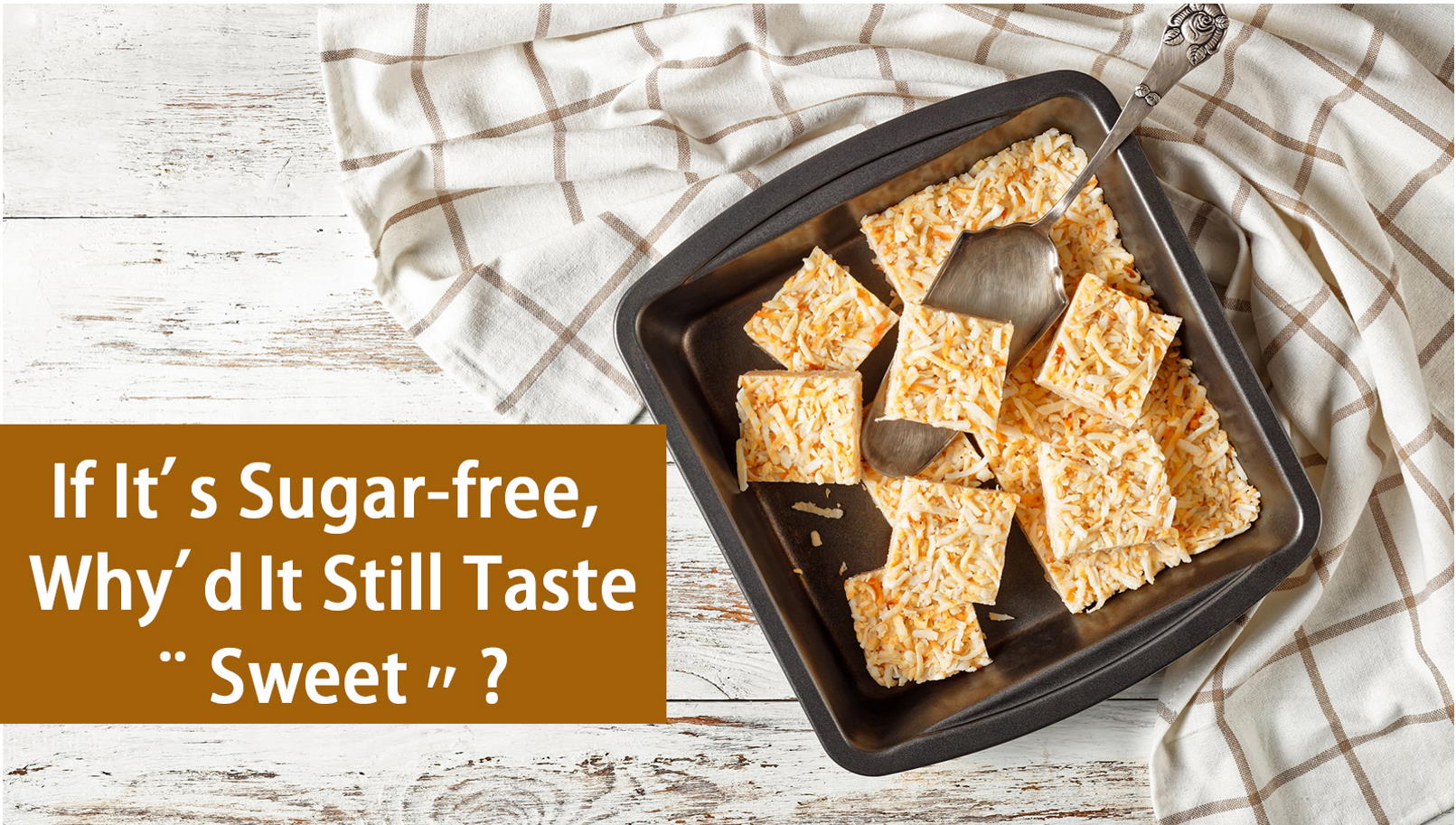22 September 2021

Sweet foods not only relax our mind, but they also help to relieve stress. A tiny hint of “sweetness” is indeed essential for people nowadays, there is even a word designed for those having a favor in sweet foods, which is “sweet tooth”. Sweet foods are undeniably delicious, however, they could also bring tremendous health problems if consumed excessively.
According to the data provided by the World Health Organization (WHO), there are approximately 8.5% of the global population suffering from diabetes. Also, the Ministry of Health of Malaysia also stated that there are 20.8% of people suffering from diabetes over the age of 30 locally. These numbers are undoubtedly concerning.
For the health of the consumers, there are a variety of “sweet food” options in the market. People get to choose their own favorites based on their personal preferences and health needs. In this case, the most popular one is probably “sugar-free” foods.
If it is labelled as “sugar-free” but why would it still taste sweet? Are sugar-free foods completely free of sugars? If that is the case, how do we explain the sweetness in the food?
Don’t worry, PhytoFairy is ready to clear your doubt!

The “sugar” that most people talk about is mainly white sugar, glucose, brown sugar, and sucrose. To put it simply, sugar-free foods are foods that do not contain any of the sugars mentioned above.

Why would it still taste sweet if sugar-free foods do not contain any sugar?
The sweetness in sugar-free foods actually comes from “sugar substitutes”. Sugar substitutes are also known as sweeteners. It contains very low calories but it can still replace the sweetness of sugar. The sweetness in sugar substitutes, or as we call it, sweetener, can be hundred times higher than the average sweetness of sucrose. But not every sugar substitute contains such sweetnesses.

There are two types of sugar substitutes – natural sugar substitutes and artificial sweeteners
Natural sugar substitutes include Stevia, Xylitol, Maltitol and other types of substitutes, whereas saccharin, sucralose and others are regarded as artificial sweeteners. Natural sugar substitutes cost higher in production yet it is much safer for consumption. However, there is no need to be too resistant towards artificial sweeteners because they are normally used in very small amounts. They will not bring huge impacts to the human body if consumed moderately.

Is it true that sugar-free foods that are made of sugar substitutes can’t make you gain weight?
Even though sugar substitutes contain lower calories, they are not real sugar after all, consuming sugar free food in the long run might trigger food craves to replenish sufficient energy for daily activities.
A warm reminder from PhytoFairy: there’s still a small proportion of calories in sugar-free foods. Although they are considered as sugar-free, the key is to take these foods in moderation.

Can sugar-free foods lower the risk of tooth decay?
It is true that sugar-free foods contain lower sugar contents and it may help to lower the risks of dental problems, however, the acidic substances in foods may dissolve enamel and create cavities eventually resulting in tooth decay. Therefore, remember to brush your teeth and drink more water after eating sugar-free foods.
Sugar substitutes may not be the first choice for our health but for those people who can only enjoy sweet foods once in a while, it is a good option for your sugar cravings. Remember, as long as you take it in moderation, it will not be a problem to enjoy sweet food.






